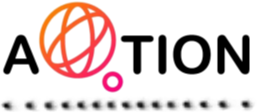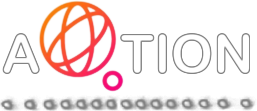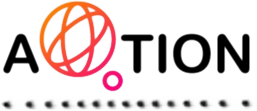May 2022
The AQTION team led by Thomas Monz at Leopold-Franzens Universität Innsbruck and Markus Müller at RWTH Aachen University and Forschungszentrum Jülich has succeeded in realizing a set of computational operations on two logical quantum bits that can be used to implement any possible operation, demonstrating how an algorithm can be programmed on a quantum computer so that errors do not spoil the result. The paper on this first realisation of fault-tolerant universal quantum gate operations was published in Nature.
Here is the IQOQI news release.
March 2022
The AQTION team and theory collaborators from the University of Innsbruck, Austria, have designed the first programmable quantum sensor, and tested it in the laboratory. To do so they applied techniques from quantum information processing to a measurement problem. The innovative method promises quantum sensors whose precision reaches close to the limit set by the laws of nature. Have a look at the IQOQI news release for detailed information or click on one of the following links to read the publications in Nature (experimental work), PRX (theory), and the accompanying APS Physics Viewpoint.
June 2021
We are very happy to share that our article on the AQTION compact quantum computing demonstrator has now been published in PRX Quantum as an Editor’s suggestion, suitably titled “The Smallest Quantum Computer Yet”. With our trapped-ion-based quantum computer that fits in two boxes, each the size of a studio apartment’s shower, we demonstrate a world record fully entangled 24-particle quantum state.
March 2021
AQTION partner TOPTICA Photonics AG joined two more quantum computing projects funded by Deutsche Initiative Quantentechnologien: The projects IQuAn, in which also the AQTION partners Uni Mainz and Fraunhofer IOF are involved, and QRydDemo. Find more details in the TOPTICA press releases.
February 2021
A new paper by AQTION partner Farid Shahandeh from the University of Swansea (formerly in Markus Müller’s group), titled “Contextuality of General Probabilistic Theories”, was just published in PRX Quantum. By looking at what structural property makes a theory like quantum mechanics prone to contextuality, this work may help us reveal where the quantumness of quantum computations is hiding.
February 2021
A paper by our AQTION partner Bálint Koczor of the University of Oxford and collaborators is now featured in the Quantum Flagship newsroom. It is about advances in visualizing large quantum states.
January 2021
The AQTION paper on Experimental deterministic correction of qubit loss made it into the 2020 atomic and quantum physics top 10 of pro-physik.de. Click here for the top 10 or here for the article on the paper on experimental deterministic correction of qubit loss. Apologies, German only.
January 2021
We are thrilled to share that the first paper on our compact ion-trap quantum computing demonstrator is now available on the arXiv: 24 qubit GHZ entanglement in a room-temperature setup housed in two 19-inch racks. You find it here.
January 2021
For the first time, physicists including our AQTION partners from the University of Innsbruck have entangled two quantum bits distributed over several quantum objects and successfully transmitted their quantum properties. This marks an important milestone in the development of fault-tolerant quantum computers. The paper titled “Entangling logical qubits with lattice surgery” was published in Nature.
July 2020
Our AQTION partners at TOPTICA published an article in LaserFocusWorld. It is titled “Lasers shape the world of quantum technologies” and you can find it here.
July 2020
Welcome Lorenzo Cardarelli!
Lorenzo completed his PhD at the University of Hannover, Germany, where he investigated quantum link models and topological phases in cold atom systems. At Aachen and Jülich he is joining the EU Quantum Technology Flagship AQTION project, where he hopes to deploy his expertise in AMO physics and the study of strongly correlated systems to contribute to the development and applications for Europe’s first compact trapped-ion quantum computer demonstrator.
May 2020
Trapped ion quantum computing turns 25. On 15 May 1995, Ignacio Cirac and Peter Zoller published the first conception of how to actually build a quantum computer in Physical Review Letters. In this seminal paper, they showed that laser-cooled atomic ions, trapped in a vacuum, could be used as qubits with which elementary quantum logic operations could be performed. The Cirac–Zoller paper turned quantum computing from a bold theoretical idea into an experimental race to build an actual device. A race that we are very happy to be part of. On the occasion of this anniversary, Nature Reviews dedicated a highlight article to the paper.
May 2020
David Amaro, Markus Müller and Amit Kumar Pal developed new and experimentally feasible protocols to characterise entanglement in noisy quantum computers, published in New J. Phys. 22, 053038 (2020)
– we invite you to also have a look at the video abstract.
March 2020
Our first results on high-fidelity entanglement between remote quantum processors are now published in PRL. The AQTION team from the University of Oxford has demonstrated high-fidelity and high-rate entanglement between two ion-trap based quantum computers separated by a couple of meters. This is an important step towards the realization of modular quantum computation. You can find the publication here.
March 2020
The AQTION team at Johannes Gutenberg University Mainz just published a new paper on shuttling-based trapped-ion quantum information processing in AVS Quantum Science. Click here to check it out.
January 2020
With the help of AQTION, a new version of QuEST was released. QuEST, which stands for Quantum Exact Simulation Toolkit, is a system for using conventional computers to mimic the behaviour of small quantum computers (up to about 40 qubits). There are several such emulators, but QuEST is exceptional in the depth and breadth of its hardware support: it’s multithreaded, distributed and GPU accelerated, so that it can make good use of practically any system. The recently released version 3.0 dramatically increases the supported features — it adds the powerful ability to simulate multi-qubit multi-controlled general unitaries and Kraus maps. In practice this means that pretty much any kind of quantum computer, with practically any kind of realistic environmental noise, can be explored with QuEST. Click here to learn more.
January 2020
David Amaro and Markus Müller developed new entanglement witnesses. In their work published in Phys. Rev. A 101, 012317 (2020), they theoretically establish the noise tolerance of the proposed witnesses and benchmark their practical performance by analyzing the local entanglement structure of an experimental seven-qubit quantum error correction code realised by the Innsbruck team.
December 2019
We are thrilled to share that Rainer Blatt is a listed among the most “Highly Cited Researchers 2019” by Clarivate Analytics and the Web of Science Group. The list recognizes the world’s most influential researchers of the past decade, demonstrated by the production of multiple highly-cited papers that rank in the top 1% by citations for field and year in Web of Science.
November 2019
Good news for quantum developers: Our ion trap quantum computer now supports Qiskit, a prominent open-source quantum programming language initially created by IBM and developed by scientist all around the world. Qiskit comes with a wide range of algorithms and applications, which will now be available via the cloud on the Innsbruck quantum devices. For more information, please check out this press release by the University of Innsbruck (German only).
October 2019
Congratulations, Markus Müller! Markus starts a professorship (W2) for theoretical quantum technology at RWTH Aachen University and Forschungszentrum Jülich, Germany, relocating from Swansea University (UK) with his research team. Click here to visit his group website.
September 2019
We are delighted to announce that quantum algorithm developers can now have direct access to our ion trap quantum computer in Innsbruck via Google’s framework Cirq. Check out this press release by the University of Innsbruck for more information.
April 2019
Rainer Blatt is awarded the Micius Prize which is presented for the first time this year by The Chinese Micius Quantum Foundation to promote outstanding research in quantum physics. Rainer receives the prize for his pioneering experiments that demonstrated fundamental elements of quantum computing with trapped ions. For more information, have a look at the IQOQI news release.
February 2019
Our preprint on bencharking a 10-qubit quantum computer is out, you find it here.




